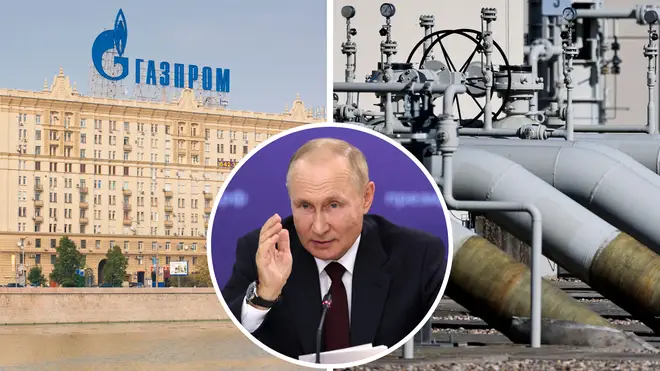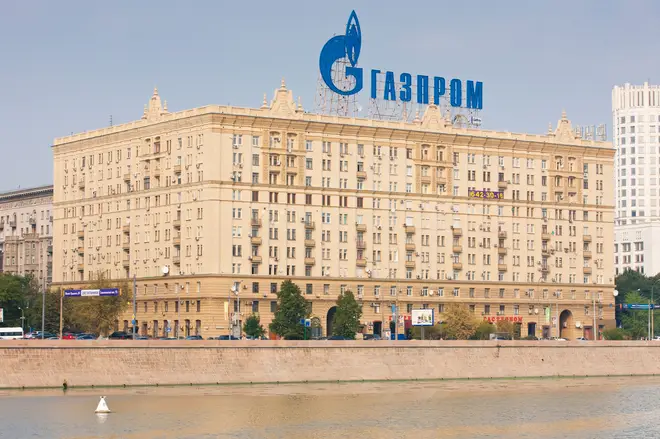
Richard Spurr 1am - 4am
2 September 2022, 18:07 | Updated: 3 September 2022, 06:57

Russia has said it will not restart the Nord Stream 1 pipeline, which supplies gas to Europe, on Saturday as expected, blaming an 'oil leak'.
Russia's Gazprom halted the flow of natural gas through the major pipeline from Russia to Europe early on Wednesday.
The stoppage was announced in advance and was supposed to last three days.
But on Friday the Russian state-run energy company said in a social media post that it had identified "malfunctions" of a key turbine along the Nord Stream 1 pipeline, which carries natural gas from western Russia to Germany.
Read more: Ukrainian forces claim advances in occupied Kherson region in major counterattack

It claimed to have received warnings from Russia's industrial safety watchdog that the leaks "do not allow for safe, trouble-free operation of the gas turbine engine".
"In connection with this, it is necessary to take appropriate measures and suspend further operation of the ... gas compressor unit in connection with the identified gross (safety) violations," the company said.
Gazprom announced the closure of Nord Stream 1 in mid-August, citing maintenance at a compressor station - an explanation that German officials have cast doubt on.
The company said that work is necessary on the only remaining functioning turbine at the Portovaya station, at the Russian end of the pipeline.

Transport Sec quizzed on ending reliance on Russian oil
It comes after finance ministers from the G7 - including Chancellor Nadhim Zahawi - agreed a price cap on Russian crude oil and petroleum products, a move Mr Zahawi said he believed would "curtail Putin's capacity to fund" the war in Ukraine.
The decision was made at a virtual meeting of the group, made up of seven of the world's richest countries - the UK, US, Canada, Italy, France, Germany and Japan - on Friday afternoon.
Confirming the news, Mr Zahawi said: "We will curtail Putin's capacity to fund his war from oil exports by banning services, such as insurance and the provision of finance, to vessels carrying Russian oil above an agreed price cap."

Blaming the energy crisis on the net zero target is 'ludicrous'
The price cap has not yet been decided.
A statement from the G7 finance ministers said it would be set by the full coalition before it is implemented in each country.
As well as limiting Russia's revenues, it is hoped the price cap can also bring down rising energy prices around the world.
Speaking after the announcement, Mr Zahawi said the move will "protect our citizens from oil price shocks next year".
Gazprom has repeatedly reduced the flow of gas through Nord Stream 1 claiming technical issues such as equipment repairs.
German officials called these cuts a political move to sow uncertainty and push up prices amid the war in Ukraine.
Russia has also reduced the flow of gas to other European countries which have sided with Ukraine in the war. The country has recently accounted for about a third of Germany's gas supplies.
The German government said last week that the drop in gas flows confirmed that Germany cannot rely on Russian deliveries, and announced it would step up its gas storage requirements and take further measures to conserve supplies.